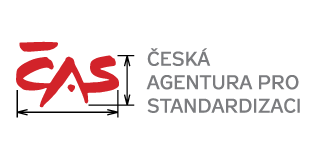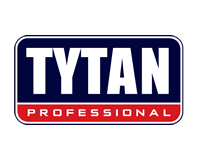Unit 3 – Construction machinery
Grammar – Present simple x continuous
"V této lekci nás nečeká "nová gramatika", ale budeme rozlišovat použití přítomného prostého a průběhového času z 1. a 2. lekce."
Statement sentences:
Look at this picture and make correct sentences (Simple Present or Present Progressive).

UNIT 3 – Statement sentences:
1. The blueprint .......... (not be) very heavy.
2. Look! This construction worker .......... (carry) a blueprint and a hard hat.
3. Normally, it .......... (dig) and .......... (move) materials.
4. The digger has got a big cabin, but nobody .......... (sit) there now.
5. He .......... (look) at a digger, which .......... (not work).
6. And look, he .......... (wear) a bright vest.
Vyhodnocení
0
chyb
chyb
Vaše odpovědi
1. The blueprint .......... (not be) very heavy.
is not
is not being
are not being
are not
2. Look! This construction worker .......... (carry) a blueprint and a hard hat.
carries
carry
is carrying
are carrying
3. Normally, it .......... (dig) and .......... (move) materials.
are digging / are moving
dig / move
digs / moves
is digging / is moving
4. The digger has got a big cabin, but nobody .......... (sit) there now.
sits
is siting
is sitting
sit
5. He .......... (look) at a digger, which .......... (not work).
look / is not working
look / does not work
is looking / is not working
is looking / does not work
6. And look, he .......... (wear) a bright vest.
wear
wears
are wearing
is wearing
Negative sentences:
Complete the sentences. Use Simple Present or Present Progressive.
UNIT 3 – Negative sentences:
1. Compactors .......... (carry / not) large amounts of gravel, sand, dirt from one site to another.
2. Tower cranes .......... (make / not) large holes and tunnels.
3. A backhoe .......... (raise / not) any material at the moment.
4. A bulldozer .......... (push/ not) enormous amount of dirt and debris right now.
5. A bricklayer .......... (use / not) a jackhammer in his job every day.
Vyhodnocení
0
chyb
chyb
Vaše odpovědi
1. Compactors .......... (carry / not) large amounts of gravel, sand, dirt from one site to another.
don´t carry
does not carry
are not carried
is not carried
2. Tower cranes .......... (make / not) large holes and tunnels.
don´t make
does not make
are not makes
is not make
3. A backhoe .......... (raise / not) any material at the moment.
is not raising
are not raising
don´t raises
does not raise
4. A bulldozer .......... (push/ not) enormous amount of dirt and debris right now.
are not pushing
does not push
is not pushing
don´t pushes
5. A bricklayer .......... (use / not) a jackhammer in his job every day.
does not use
don´t uses
is not using
are not using
Vocabulary

soil, dirt
hlína, půda
hlína, půda

excavation
vykopání, vyhloubení
vykopání, vyhloubení

ability
schopnost
schopnost

dredging
vybagrování (dna pod vodou)
vybagrování (dna pod vodou)

smaller scale
menší měřítko
menší měřítko

wrecking ball
demoliční koule
demoliční koule

haul
přepravovat, dopravovat (obzvláště těžký náklad)
přepravovat, dopravovat (obzvláště těžký náklad)

backhoe
rypadlo
rypadlo

boring
vrtání
vrtání

trencher
rýhovač
rýhovač

waste management
odklízení odpadu, nakládání
s odpadem
odklízení odpadu, nakládání
s odpadem

according to
podle
podle
Exercise
1. Connect words with their definitions:
UNIT 3 – Connect words with their definitions:
1. process of making or enlarging a hole:
2. machines which have a metal chain with teeth made of high-strength steel. This allows the machine to tear into the ground:
3. clear the bed of (a harbour, river, or other area of water) by scooping out mud, weeds, and rubbish:
4. heavy metal ball swung from a crane into a building to demolish it:
5. sth of limited size or extent:
6. The total supervision of waste production, handling, processing, storage, and transport from its point of generation to its final acceptable disposal.
7. the process of moving earth, rock, or other materials with tools, equipment, or explosives:
8. skill to do something:
9. the loose surface material that covers most land:
10. based on what is said or stated by; on the authority of:
11. to pull something heavy slowly and with difficulty:
12. loader excavator:
Vyhodnocení
0
chyb
chyb
Vaše odpovědi
1. process of making or enlarging a hole:
filing
boring
holing
2. machines which have a metal chain with teeth made of high-strength steel. This allows the machine to tear into the ground:
toasters
tearers
trenchers
3. clear the bed of (a harbour, river, or other area of water) by scooping out mud, weeds, and rubbish:
mudding
weeding
dredging
4. heavy metal ball swung from a crane into a building to demolish it:
wrecking ball
wreckling marble
wrecking cube
5. sth of limited size or extent:
gigantic
smaller scale
huge
6. The total supervision of waste production, handling, processing, storage, and transport from its point of generation to its final acceptable disposal.
waste checking
waste directing
waste management
7. the process of moving earth, rock, or other materials with tools, equipment, or explosives:
excavation
drawing
elicitation
8. skill to do something:
intelligence
laziness
ability
9. the loose surface material that covers most land:
spikes
carpet
soil
10. based on what is said or stated by; on the authority of:
according to
basement
status
11. to pull something heavy slowly and with difficulty:
haul
push
howl
12. loader excavator:
backspade
backshovel
backhoe
2. Reading text:
Construction machinery is all machinery used for activities in construction, ranging from soil excavation to the transportation, loading, and unloading of materials and waste management.
How are construction machines classified?
Construction machinery can be classified according to its ability:
- Heavy machinery: vehicles of large proportions and weight. The operator using it must have special accreditation for the specific use of this type of machine. It is intended for large earthworks (open spaces or tunnels); it is also commonly used for deep excavations and setting foundations, dredging, or drilling.
- Semi-heavy machinery: these vehicles are of medium proportions compared to the previous category. Some machines match heavy machinery in name and function but are simply adapted to a smaller scale.
- Light machinery: this category includes construction equipment of small dimensions with very specific functions.
Construction machinery can also be classified according to its use:
- Demolition: such as a wrecking ball or jackhammer.
- Hauling materials: these are mostly trucks designed for heavy loads, with the capacity to carry tons of materials. Dump trucks, bins, and concrete mixers are just a few examples.
- Excavation: used to make ditches, land extensions, canals, tunnels etc. Excavators, skid steer loaders, backhoes, tunnel boring machines, trenchers, and draglines are some examples.
- Ground preparation: steamrollers or motor graders, for instance.
- Moving materials: such as tower cranes or truck cranes.
2.1 Answer some questions:
- What does an operator of heavy machinery need for using it?
- Can an excavator be used for making ditches?
- What is the difference between heavy machinery and semi-heavy machinery?
2.2 Translate some sentences:
- Tyto materiály jsou většinou převáženy těžkou technikou.
- Parní válec právě připravuje pozemek na stavbu.
3. Video
Ve videu uslyšíte:
reverse
obrátit, zvrátit, dát naopak
obrátit, zvrátit, dát naopak
shallow
mělký
mělký
skyscraper
mrakodrap
mrakodrap
level
vyrovnat, srovnat, dát na stejnou úroveň
vyrovnat, srovnat, dát na stejnou úroveň
elevation
zvýšení, vyvýšení
zvýšení, vyvýšení

3.1 Answer some questions:
- Which heavy equipment is used to level the ground for road building?
- What is the name of a heavy equipment machine which assists with putting items onto trucks and dumpers?
- Which heavy equipment machine is most commonly used in the early stages of construction and is often known as a digger?
- What is another name for rollers?
- Which heavy equipment machine is sometimes reversed to work in power shovel configuration?
- Which heavy equipment machine is used to carry large amounts of materials from one site to another?
- Which heavy equipment machine is often used in construction of higher structers and skyscrapers?
- Please, name two types of dozers:







